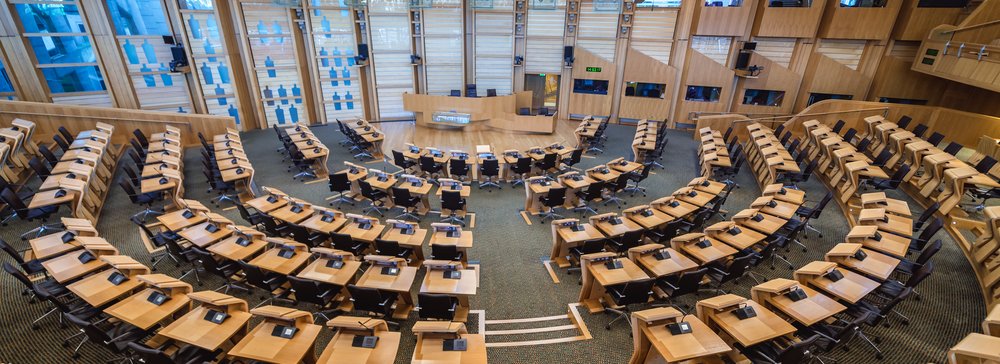| 7 mins read
The establishment of the Scottish Parliament created new institutions and a political environment which has had lasting implications for Scottish and UK politics, including furthering the rise of the Scottish National Party and the independence question. One central element of this new terrain has been the emergence of the post of First Minister (FM). This, the most prominent political position in Scotland, deserves attention, not least because political leadership influences how Scotland’s democracy has developed and continues to do so in future; perhaps as an independent nation.
The Labour years: Dewar, McLeish, McConnell
The first Scottish Parliament elections saw Labour emerge as the largest party and form a coalition with the Liberal Democrats. Donald Dewar was the first ever FM. He was a Westminster-imbued politician, Shadow Secretary of State for Scotland from 1983–92, and piloted the Scotland Act 1998, which set up the Scottish Parliament. The first Scottish Executive was turbulent and tragically shaped by Dewar’s death while still in post, with Henry McLeish succeeding him. McLeish had been leader of Fife Regional Council from 1982–87, became an MP in 1987, serving as a junior minister in the Blair government, before becoming a minister in the first Scottish Executive.
McLeish tried to differentiate between the Scottish Parliament and Westminster, Scottish and UK Labour, by advancing free care for the elderly as the signature policy. This built up resentment amongst Labour MPs and, ultimately, McLeish was forced to resign in November 2001 after an expenses scandal.
Jack McConnell became the third Labour FM and sought to restore calm. McConnell had a background in local government and held posts under Dewar and McLeish and, on becoming FM in November 2001, purged the Cabinet of people he thought insufficiently loyal. This did not embolden him, however, as he felt constrained by Gordon Brown, who took a proprietary view over Scotland. McConnell’s political style embraced a self-denying ordinance to try and diminish the scope for conflict with Westminster, yet he introduced proportional representation in local government, which saw a significant tranche of Labour representatives removed from office. This move was to the detriment of Labour and the advantage of the SNP. McConnell’s tenure as FM ended in May 2007 when Labour lost the Scottish Parliament elections to the SNP.
Assessing the Labour years
Despite previous experience, all three Labour FMs struggled to adapt to the pressures and expectations of devolution. They inhabited the FM position with a degree of caution which contributed to Scottish Labour’s defeat. One major facet affecting all three leaders were internal fissures within Labour. There were divisions around policy, whilst many Westminster Scottish Labour MPs viewed the Scottish Parliament with a degree of envy and suspicion. This contributed to a policy vacuum about devolution; a void that still haunts Labour.
The SNP years: Salmond, Sturgeon, Yousaf
Scottish politics and the role of FM changed when the SNP took charge in May 2007. Alex Salmond became leader of a minority administration whose survival depended on making deals with other parties. This SNP administration changed the nature of Scottish politics, renaming the ‘Executive’ as ‘the Scottish government’, and transforming the FM into the leader of a national administration. This, as well as the SNP’s popularity and competence contributed to the SNP landside in 2011, running on a manifesto that sought independence.
Salmond resigned after the 2014 referendum, which was won by the Union 55:45 and Nicola Sturgeon succeeded him with no contest. In retrospect, Sturgeon was hugely popular and could have used her political capital to reposition herself as a national leader. She instead chose a politics of caution, with much effort going on maintaining the SNP’s ‘big tent’ appeal. Her later handling of Covid brought widespread plaudits and skyrocketing ratings, and the 2021 Scottish elections saw another SNP victory.
Yet, Sturgeon shocked the political world by announcing her resignation in February 2023. Sturgeon’s eight and a half years as SNP leader and FM saw her maintain the SNP as the dominant party in Holyrood and Westminster. However, she failed to use her immense political appeal to chart long-term priorities; whilst her bid for independence was blocked by the Supreme Court. Ultimately, she was tactician who ran out of road in the art of government.
Humza Yousaf came to office after a divisive contest with Kate Forbes in March 2023 that he narrowly won 52:48. In the election contest, and subsequently, the SNP was engulfed in controversy over the culture of party management and finance during the Sturgeon era. Yousaf faces big choices, with a weak mandate and a divided party. This has echoes of how Labour dominance in Scotland ended.
What does the era of SNP FMs so far tell us?
There has been the remaking of the FM post under Salmond and Sturgeon as the most prominent elected political leader in Scotland. It remains to be seen if this was connected to Salmond and Sturgeon as personalities, or about the SNP and its political dominance. This expanded role has resulted in a concentration in power in the office of FM and is a quasi-presidentialism of the position.
The changing contours of Scottish politics
Scotland has not embraced the kind of democratisation and political innovation many hoped for pre-1999. Instead, much of the Scottish Parliament and government mirrors Westminster, which suits the kind of leadership exhibited by Salmond and Sturgeon and, to a lesser extent, Jack McConnell. This has ultimately led to the rise of a form of leadership which is in part presidential and deeply presentational and has not aided the aims and values which those leaders have claimed they most care about. That must be judged as overall a negative outcome of the devolution era’s first quarter century and one which needs to be assessed fully and dispassionately, so that a more informed debate and better equipped politics and leadership can emerge relevant to the challenges Scotland faces.







